You should always be ready for any weather while going camping outside. This involves dressing appropriately and taking precautions against wind, rain, sunburn, and snow. Additionally, be mindful of any possible wildlife encounters. Bears are frequently seen in campgrounds and hiking trails; to frighten them away, stay well away and create loud noises.
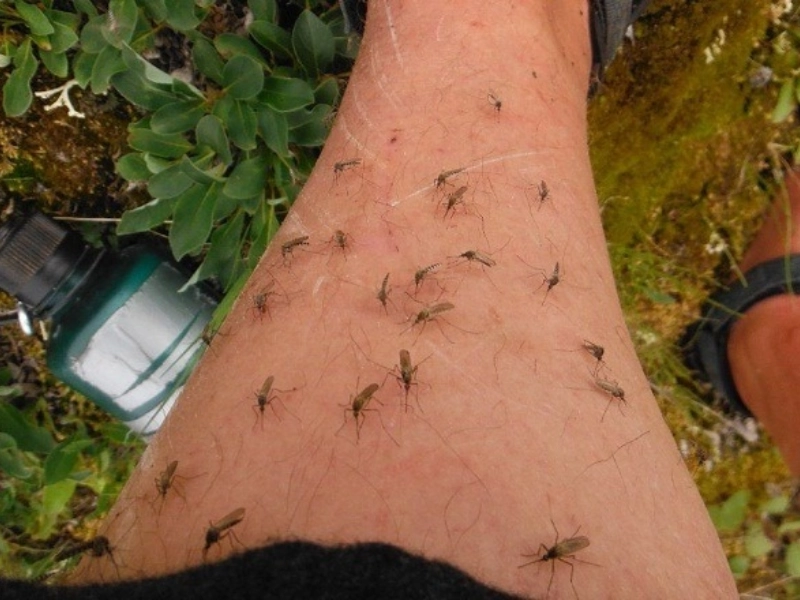
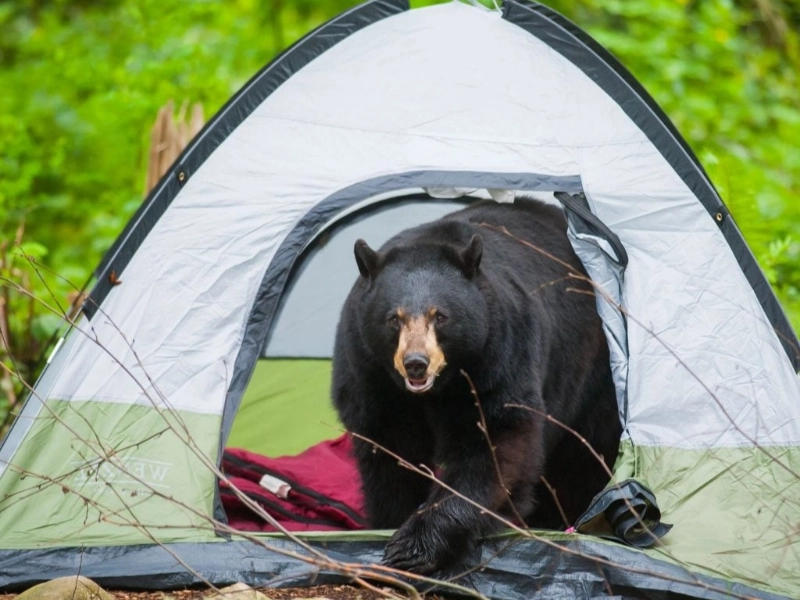 The kinds of wild creatures that can endanger your safety vary depending on where you camp. Bears are widespread in the north, and although they usually stay away from humans, you may draw them in if you put food out. Make loud noises and shine a light to frighten away bears if you spot them.
There is also a chance that other animals, such as ticks, snakes, and mosquitoes, will harm you. While ticks can spread fatal infections, mosquitoes can bite you and cause itching. Stay on pathways to keep yourself safe from wildlife, especially larger species, and keep a lookout for them.
The kinds of wild creatures that can endanger your safety vary depending on where you camp. Bears are widespread in the north, and although they usually stay away from humans, you may draw them in if you put food out. Make loud noises and shine a light to frighten away bears if you spot them.
There is also a chance that other animals, such as ticks, snakes, and mosquitoes, will harm you. While ticks can spread fatal infections, mosquitoes can bite you and cause itching. Stay on pathways to keep yourself safe from wildlife, especially larger species, and keep a lookout for them.
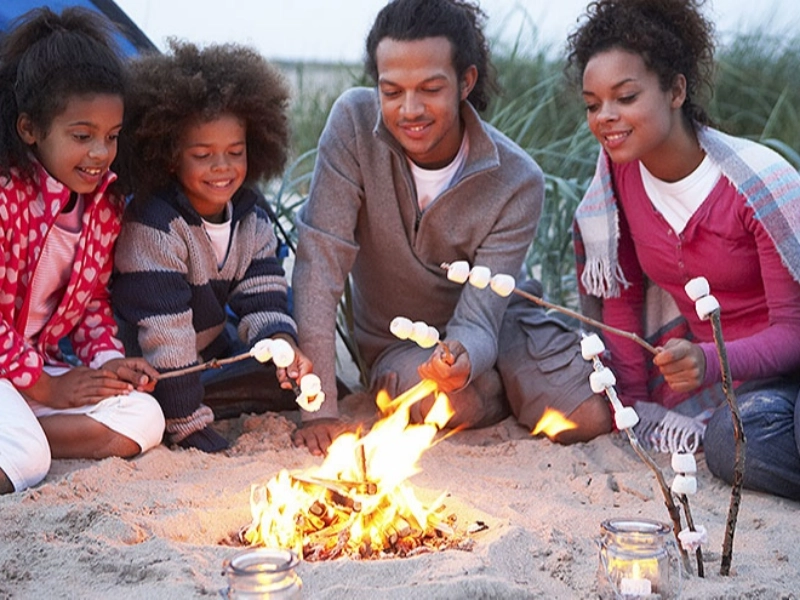 Wildfires can be found amid the vast forests and open areas that make America's National Parks so well-liked. The risk of fire is greatest during the summer, and one small error might convert your campground into a potentially fatal forest fire. Keep in mind to abide by burn and campfire regulations, and use caution while pitching your tent near combustible things.
Low-intensity wildfires are vital to some ecosystems and aid in the renewal of soil and vegetation, despite their risks. When hiking uphill against the direction of the prevailing winds, always keep an eye on the direction of any smoke and go downwind, not towards it. By doing this, you'll be less likely to spread flames that could ignite your clothing.
Wildfires can be found amid the vast forests and open areas that make America's National Parks so well-liked. The risk of fire is greatest during the summer, and one small error might convert your campground into a potentially fatal forest fire. Keep in mind to abide by burn and campfire regulations, and use caution while pitching your tent near combustible things.
Low-intensity wildfires are vital to some ecosystems and aid in the renewal of soil and vegetation, despite their risks. When hiking uphill against the direction of the prevailing winds, always keep an eye on the direction of any smoke and go downwind, not towards it. By doing this, you'll be less likely to spread flames that could ignite your clothing.
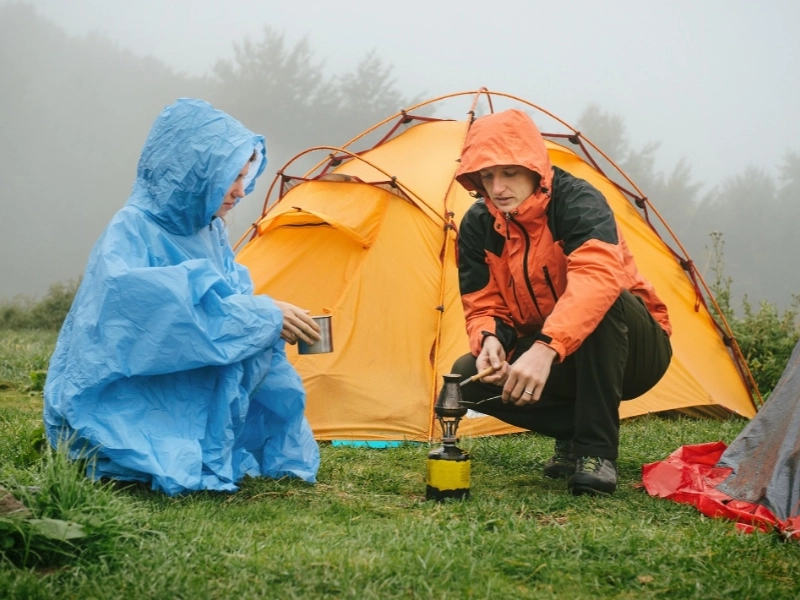 Fresh air and wonderful cuisine are just two of the numerous advantages of camping, which is a popular summertime pastime. To ensure a safe journey, camping does come with some risks, so preparation is necessary.
One of the biggest hazards when camping is the weather, particularly in extremely hot or cold conditions. Individuals may have heat stroke or exhaustion, which can be fatal if left untreated.
Before leaving your house, make sure to check the weather forecast for the area where you plan to camp. This will help you get a sense of what to anticipate, but be ready for the prediction to alter.
Fresh air and wonderful cuisine are just two of the numerous advantages of camping, which is a popular summertime pastime. To ensure a safe journey, camping does come with some risks, so preparation is necessary.
One of the biggest hazards when camping is the weather, particularly in extremely hot or cold conditions. Individuals may have heat stroke or exhaustion, which can be fatal if left untreated.
Before leaving your house, make sure to check the weather forecast for the area where you plan to camp. This will help you get a sense of what to anticipate, but be ready for the prediction to alter.
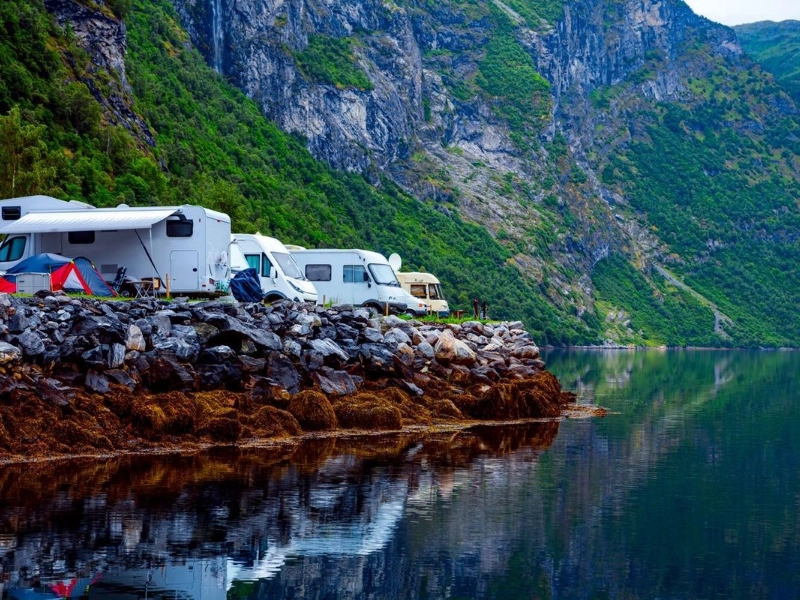 The leading cause of death in locations designated as National Recreation Areas is drowning. Selecting campsites that are sufficiently remote from water features is crucial to avert any possible hazards.
There is usually a minimum buffer requirement for camping near lakes, rivers, and streams. This is intended to keep additional pollutants, including human sewage, from contaminating the water.
Water in the backcountry is frequently contaminated by cross-contamination. This can happen if unclean hands come into contact with storage container apertures like threads, nozzles, and caps. To provide adequate water safety, a system for hand washing and appropriate container handling must be established.
The leading cause of death in locations designated as National Recreation Areas is drowning. Selecting campsites that are sufficiently remote from water features is crucial to avert any possible hazards.
There is usually a minimum buffer requirement for camping near lakes, rivers, and streams. This is intended to keep additional pollutants, including human sewage, from contaminating the water.
Water in the backcountry is frequently contaminated by cross-contamination. This can happen if unclean hands come into contact with storage container apertures like threads, nozzles, and caps. To provide adequate water safety, a system for hand washing and appropriate container handling must be established.
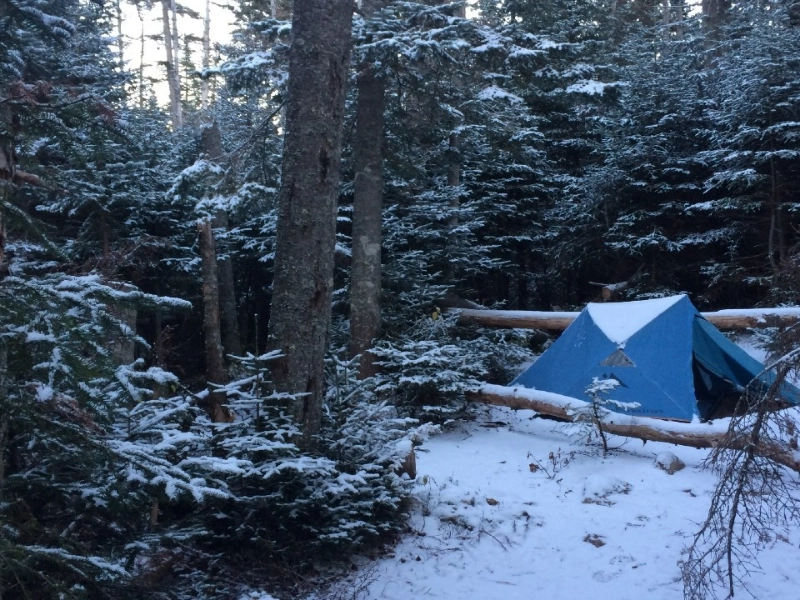 Shivering, numb hands and feet, and low energy are signs of hypothermia. It's critical to seek assistance as soon as you detect these symptoms. If left untreated, the illness can result in serious health issues and sometimes even death.
Dress in layers and monitor the weather to avoid hypothermia. Babies and young children should always be dressed in extra layers since they lose body heat more quickly than adults do. Additionally, be sure to take off any damp clothing as soon as you can. Bring a GPS device or a map and compass as well, because cell reception in isolated places could be spotty.
Shivering, numb hands and feet, and low energy are signs of hypothermia. It's critical to seek assistance as soon as you detect these symptoms. If left untreated, the illness can result in serious health issues and sometimes even death.
Dress in layers and monitor the weather to avoid hypothermia. Babies and young children should always be dressed in extra layers since they lose body heat more quickly than adults do. Additionally, be sure to take off any damp clothing as soon as you can. Bring a GPS device or a map and compass as well, because cell reception in isolated places could be spotty.
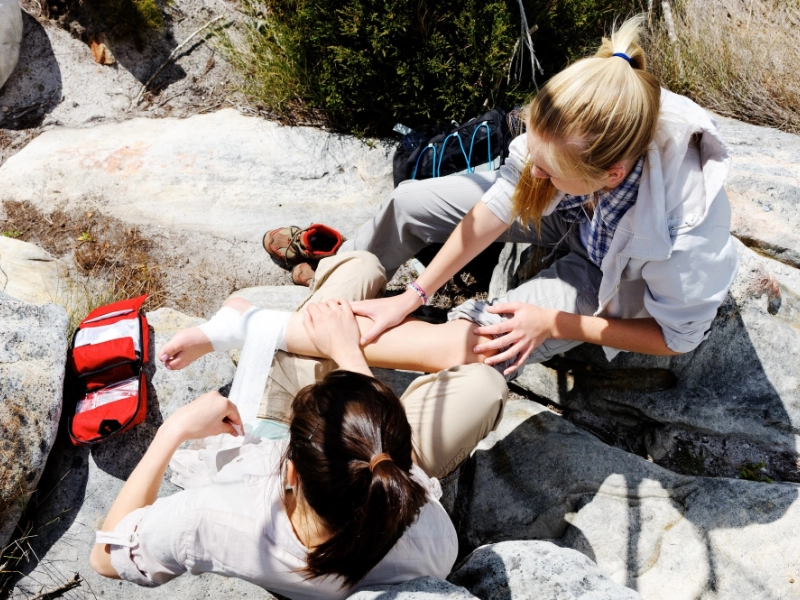 Serious accidents can happen when camping. These can include diseases, injuries, and, if left untreated, even death. These dangers could result from problems produced by humans or from natural calamities.
Falls are a common risk when camping. These may happen if you stray from the path while trekking. This may result in bone fractures, sprains, or even fatalities.
Touching poison ivy or poison oak, among other harmful plants, can result in more mishaps. These may result in allergic responses as well as rashes. You should always stay away from them.
Serious accidents can happen when camping. These can include diseases, injuries, and, if left untreated, even death. These dangers could result from problems produced by humans or from natural calamities.
Falls are a common risk when camping. These may happen if you stray from the path while trekking. This may result in bone fractures, sprains, or even fatalities.
Touching poison ivy or poison oak, among other harmful plants, can result in more mishaps. These may result in allergic responses as well as rashes. You should always stay away from them.